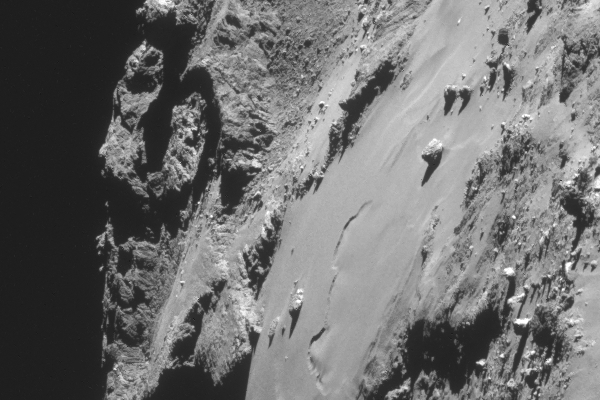Why NASA picked Boeing over Sierra Nevada
A NASA internal document obtained by Aviation Week outlines the agency’s reasons for rejecting Sierra Nevada and its Dream Chaser spacecraft in its commercial manned space program.
Although the document praises Sierra’s “strong management approach to ensure the technical work and schedule are accomplished,” it cautions that the company’s Dream Chaser had “the longest schedule for completing certification.” The letter also states that “it also has the most work to accomplish which is likely to further extend its schedule beyond 2017, and is most likely to reach certification and begin service missions later than the other ‘Offerors’.”
Discussing costs, Gerstenmaier says that “although SNC’s [Sierra Nevada] price is lower than Boeing’s price, its technical and management approaches and its past performance are not as high and I see considerably more schedule risk with its proposal. Both SNC and SpaceX had high past performance, and very good technical and management approaches, but SNC’s price is significantly higher than SpaceX’s price.”
The document essentially was written, and probably leaked to the press now, to justify the political decision to give the contracts to Boeing and SpaceX. Thus, it waxes very enthusiastic about Boeing, since giving Boeing the contract, with the highest price and the least metal cut, needs some justification.
A NASA internal document obtained by Aviation Week outlines the agency’s reasons for rejecting Sierra Nevada and its Dream Chaser spacecraft in its commercial manned space program.
Although the document praises Sierra’s “strong management approach to ensure the technical work and schedule are accomplished,” it cautions that the company’s Dream Chaser had “the longest schedule for completing certification.” The letter also states that “it also has the most work to accomplish which is likely to further extend its schedule beyond 2017, and is most likely to reach certification and begin service missions later than the other ‘Offerors’.”
Discussing costs, Gerstenmaier says that “although SNC’s [Sierra Nevada] price is lower than Boeing’s price, its technical and management approaches and its past performance are not as high and I see considerably more schedule risk with its proposal. Both SNC and SpaceX had high past performance, and very good technical and management approaches, but SNC’s price is significantly higher than SpaceX’s price.”
The document essentially was written, and probably leaked to the press now, to justify the political decision to give the contracts to Boeing and SpaceX. Thus, it waxes very enthusiastic about Boeing, since giving Boeing the contract, with the highest price and the least metal cut, needs some justification.




